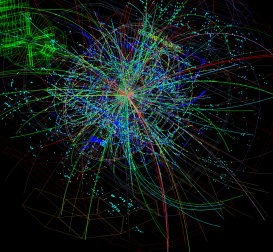Effective field theories have become increasingly popular tools in physics during the last decades. Many physicists even believe that our most fundamental and empirically successful theories, such as the Standard Model of particle physics and General Relativity, are best formulated as effective theories. Yet, these theories are, by design, not even meant to be final, complete, and fundamental, and their success suggests a radical shift in the way physicists have come to conceive of the nature of scientific inquiry at the frontiers of physics.
My research project examines the rise of the new paradigm of effective theories in the 1960–80s, especially through the works of Kenneth Wilson and Steven Weinberg. I aim to show against common historical accounts that the research programs they initiated failed to converge towards a fully unified framework by the end of the 1970s. The first part of the project investigates the origins of the conceptual and methodological gap between Wilson's and Weinberg's prototypes of effective theories in the 1960s. The second part looks at the impact of the revival of the unified field theory program in the early 1970s on Weinberg's conception of effective theories and shows that it drew Weinberg and Wilson even further apart. The third part defends the idea that Weinberg's encounter with the Wilsonian renormalization program in the mid–1970s was a missed opportunity and not the occasion for Weinberg to spread the “Wilsonian revolution” contrary to what is usually said. The last part synthesizes the state of affairs in the early 1980s. I also explain how Weinberg's and Wilson's works have given rise to remarkably different effective field theory traditions in contemporary physics and paved the way for the decline of the final theory program in particle physics.

